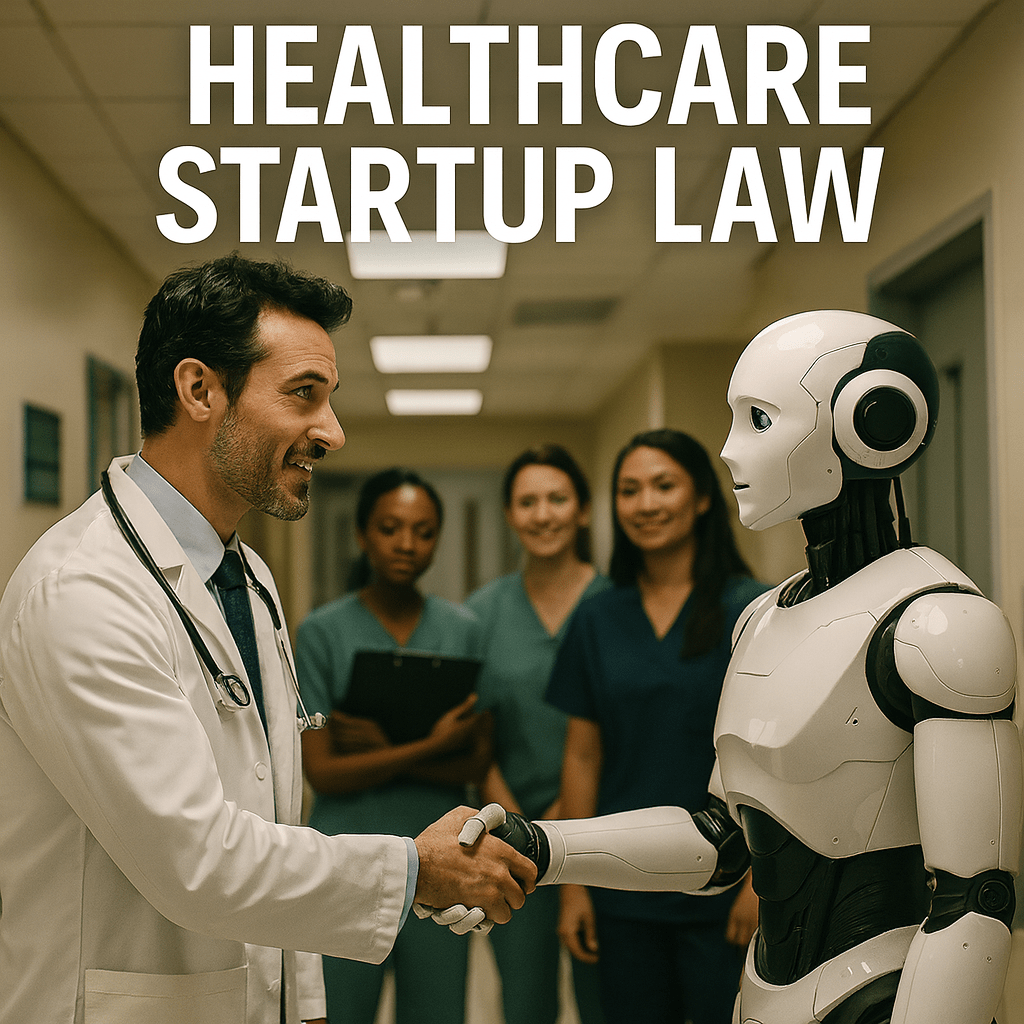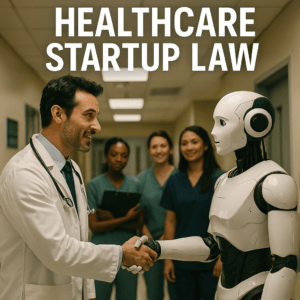AI is transforming healthcare—from triage chatbots and radiology diagnostics to personalized treatment recommendations. But when software starts to influence medical outcomes, it’s not just a tech play anymore. It’s regulated territory. And for technology startup founders building in this space, healthcare startup law isn’t optional. It’s the infrastructure that supports your business model, intellectual property strategy, and risk mitigation.
In this blog, we explore the key legal frameworks that healthcare startups using AI must navigate, and how to lay the right legal foundation for growth and compliance.
HIPAA and Health Data Privacy
If your AI product handles protected health information (PHI), you’re immediately subject to the Health Insurance Portability and Accountability Act (HIPAA). This federal law governs how patient data can be collected, stored, shared, and analyzed.
Most AI startups are not covered entities (like hospitals or insurers), but they may still qualify as business associates under HIPAA if they process PHI on behalf of covered entities. That means you’ll need:
- A Business Associate Agreement (BAA) with every covered partner
- Data security infrastructure that meets HIPAA standards
- Policies for breach response, data minimization, and audit readiness
Many technology startup founders mistakenly think anonymizing data sidesteps HIPAA. But if there’s a risk of reidentification—or if you’re combining datasets in a way that might trace back to individuals—you’re still in HIPAA territory.
FDA Regulation of AI-Based Medical Devices
If your product performs diagnostic functions, influences treatment decisions, or replaces physician judgment, it may be considered a medical device under FDA law.
The FDA has issued guidance around “Software as a Medical Device” (SaMD), and is actively developing frameworks for adaptive AI models that learn over time. For startups, this means:
- Understanding whether your AI falls under Class I, II, or III device risk levels
- Preparing for premarket notification (510(k)), de novo classification, or premarket approval (PMA)
- Keeping validation and testing records to support claims of safety and effectiveness
- Adapting to the FDA’s position on continuous learning systems (machine learning models that evolve with new data)
Skipping this analysis can expose you to enforcement, product recalls, or class action lawsuits.
State Medical Board Rules and “Practicing Medicine”
An often-overlooked issue in healthcare startup law is the risk that your AI system could be seen as practicing medicine without a license.
In most U.S. states, only licensed physicians can diagnose or prescribe. If your AI chatbot suggests medications, treatment plans, or diagnoses, you may need to:
- Build in clear disclaimers and scope limitations
- Require licensed medical oversight or integration
- Structure your service as a tool for doctors—not a replacement
Courts and regulators are still forming views here, but one wrong user experience flow could draw legal scrutiny.
 Intellectual Property for Healthcare AI
Intellectual Property for Healthcare AI
Protecting innovation is tricky when your core product learns and evolves over time. Traditional patent filings may not fully cover the scope of a dynamic machine learning model.
Still, healthcare tech startups should:
- File provisional patents for novel model architectures, algorithms, and hardware integrations
- Register copyrights for software code and training data compilations
- Use trade secret protections (with access controls and NDAs) for proprietary datasets
- Own all IP developed by contractors or advisors through written assignments
Investors want to see defensible IP—and that means tight legal control from day one.
Liability and Malpractice Risks
When AI touches clinical outcomes, there’s always a question: Who’s responsible if something goes wrong?
If a patient is harmed by an AI-generated recommendation, liability could attach to:
- The physician who relied on the tool
- The healthcare provider organization
- The software company that built the model
Even if you’re not a traditional healthcare provider, you could be pulled into lawsuits under negligence or product liability theories. That’s why your contracts, disclaimers, and insurance coverage need to be built with medical risk in mind.
Data Licensing and Third-Party Access
Training a useful medical AI model requires access to massive datasets. But healthcare data is among the most tightly regulated in the world.
Before using third-party data, you must:
- Confirm the data was collected legally
- Review all data use agreements (DUAs) and licensing terms
- Clarify IP ownership and usage limits
- Document whether the data includes de-identified or limited data sets under HIPAA
Working with academic partners or hospitals? Make sure your startup retains commercial rights to the model outputs. Universities and institutions may want a stake—or impose licensing restrictions.
Healthcare Startup Law Is Legal Infrastructure
Whether you’re building a triage tool, a drug discovery engine, or a mental health chatbot, healthcare startup law is what keeps the runway clear for scale. Founders in this space must think beyond product-market fit and toward regulatory fit.
David Nima Sharifi, Esq., founder of the L.A. Tech and Media Law Firm, is a nationally recognized IP and technology attorney with decades of experience in M&A transactions, startup structuring, and high-stakes intellectual property protection, focused on digital assets and tech innovation. Featured in the Wall Street Journal and recognized among the Top 30 New Media and E-Commerce Attorneys by the Los Angeles Business Journal, David advises founders, investors, and acquirers on the legal infrastructure of innovation.
Schedule your confidential consultation now by visiting L.A. Tech and Media Law Firm or using our secure contact form.



